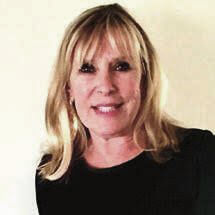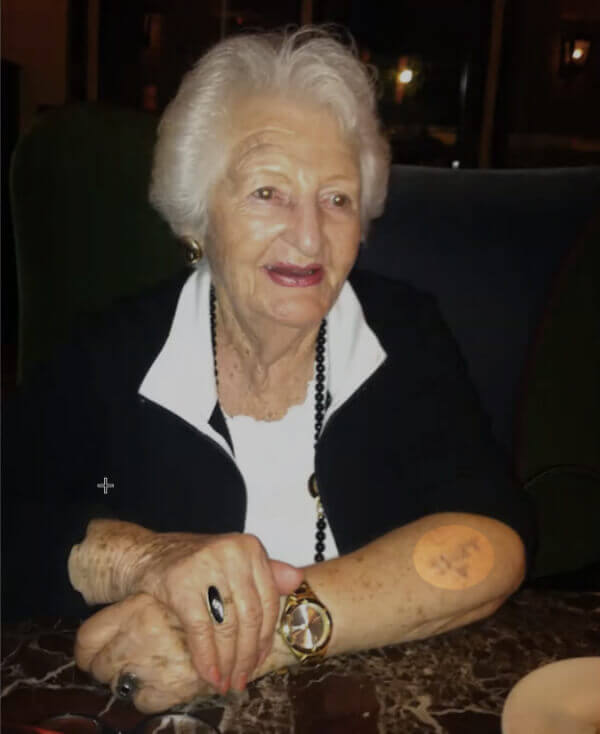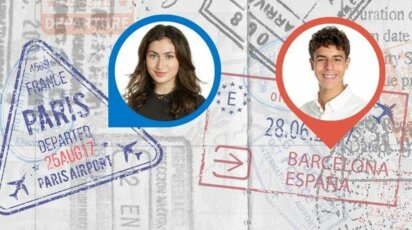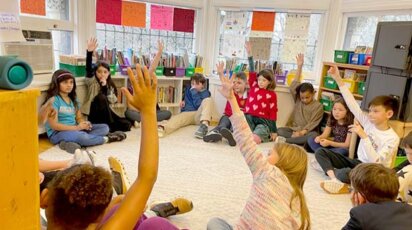News
Child of Survivors Is Guest at Holocaust Remembrance Assembly
“I need to tell you” about the Holocaust, Pauline Zablow’s mother often told her when she was just a child. “I lived it. You need to hear it.”

Poly welcomed Pauline Zablow, a member of Park Avenue Synagogue and a child of Holocaust survivors, as guest speaker at our Holocaust Remembrance Assembly during a Middle and Upper School community time webinar on February 5.
Zablow taught Julia Schnipper ’21, president of Poly’s Jewish Caucus, in Hebrew school. Schnipper arranged to have Zablow speak to the Poly community and introduced her.
The assembly began with a video of Josh Nelson singing “L’Dor Vador,” which means “from generation to generation” in Hebrew. Zablow noted that January 27 was the 76th anniversary of the liberation of Auschwitz, the horrific Nazi concentration camp in Poland where her own father had been a prisoner. It was just one of the camps in which 6 million Jews, as well as many disabled, LGBTQ, and Roma people were murdered during the Holocaust.
Zablow said that she was going to share “memories of my family,” telling four of their stories. When she was two or three years old, her mother began to tell her stories of the Holocaust. As a small child, she did not want to hear them, but her mother insisted. As an adult, Zablow says, “Now it is up to me to tell it.”
“Now it is up to me to tell it.”
Dora Fields
Zablow’s mother, Dora Fields, grew up in a shtetl, a small town in Poland. When the war began, her family went to her father’s sister’s town, which was a ghetto. They escaped the ghetto and used what little money they had left to pay people to hide them. When they ran out of money, they had to hide in “bunkers” in the woods. A bunker was a hole in the ground that could fit about three people. They knew that people would be coming to the woods to cut branches to use for Palm Sunday and that her family was in danger of being discovered. Dora, her sister, and father fell asleep in the bunker and in the morning they felt something wet on their faces. They opened the bunker door above and found that snow had hidden the bunker. This snow in April hid and saved them! After this close call, they stayed in a friend’s potato cave until they were liberated by the Russians.
Millie Smilowitz

Zablow shared a photo of her mother-in-law Millie Smilowitz’s arm bearing the tattooed number 31804. Millie was 15 when she was sent to Auschwitz. There she was put on one line and the rest of her family on another. She found her father and took him some bread, but he told her, ”Please do not come here anymore” because he was afraid for what would happen to her. It was the last time she saw any of her family. After the camp was liberated, she went to a displaced persons (DP) camp and finally to America. Her husband, Murray, also a survivor, died in his 30s leaving her with two children. It was not until the early 1990s that Millie finally told her story.
Isaac Fields
Zablow’s father, Isaac Fields, grew up in Lodz, Poland. When World War II broke out, he was put in the Lodz Ghetto. In the ghetto, he was sent to work each day until he was briefly moved to Auschwitz. From Auschwitz, he was sent to Dora [Dora-Mittelbau], a labor camp. Here he was forced to work underground building missiles for the Nazis. He rarely saw daylight and was forced to work in truly horrendous conditions. Toward the end of the war he was transported to Bergen-Belsen where he stayed until the British liberated the camp. After the war, he also found his way to a DP camp and finally to America, where he met his wife, Dora, ironically with the same name as the camp. He joked, “Well, I survived one Dora.” They were happily married for 59 years. Pauline Zablow said that when the TV mini series Holocaust aired, her father finally was prompted to say to her, “Do you know what they did to me?”
Tante Betty
The last family story Zablow told was about her Tante Betty, who was born in 1937. When she was a baby, her mother gave her to an older, non-Jewish neighbor to raise as a Christian. She was taught to say that she was “not Jewish.” When the Nazis came to the woman’s house, suspicious that an older woman would have such a young child, they told Betty they would give her chocolate if she admitted that she was Jewish. No matter how many times they tried to entice her with the promise of chocolate, Betty would only say, “I am not Jewish.” Finally they left. The Nazis didn’t realize that Betty did not know what chocolate was! Betty had a memory from her childhood, when her caregiver took her to someone else’s house and told her not to look out the window, but she peeked and saw a woman come to the older woman’s house. Years later someone told her that her real mother had gotten on a train at one point and returned to the town, but was recognized as being Jewish and taken away. Tante Betty thinks the woman she saw was her mother.
“The only way is to hear the stories, to repeat the stories.”
Dora Fields died in January. Zablow says the day after her mother was buried, mobs invaded the U.S. Capitol and she was horrified to see some wearing “Camp Auschwitz” T-shirts. “If I ever felt I had to tell these stories…” she said before becoming overcome. “The only way is to hear the stories, to repeat the stories.”
Julia Schnipper opened the assembly for questions. Students asked Zablow about displaced persons camps and what it was like to hear her parents’ stories. “It hurt me,” Zablow said. “It was hard. It rips my heart out.”
Asked if her parents experienced anti-Semitism in New York, Zablow described their early home in a tenement building on the Lower East Side, her father having to americanize their last name, being ridiculed for their accents, and her parents having to learn English along with her. Often, their new friends in America could not comprehend what they had suffered.
Zablow said that to preserve her story, her mother shared an oral history with Steven Spielberg’s Shoah project for the Holocaust Museum.
Pauline now teaches Hebrew school at Park Avenue Synagogue, where she continues to share her family’s stories so that we will never forget the horror of the Holocaust. It is hard to tell the stories, she said. “I feel better when I know people are listening.”
Julia Schnipper ‘21 created a podcast in which she interviewed Pauline for a history class project.



